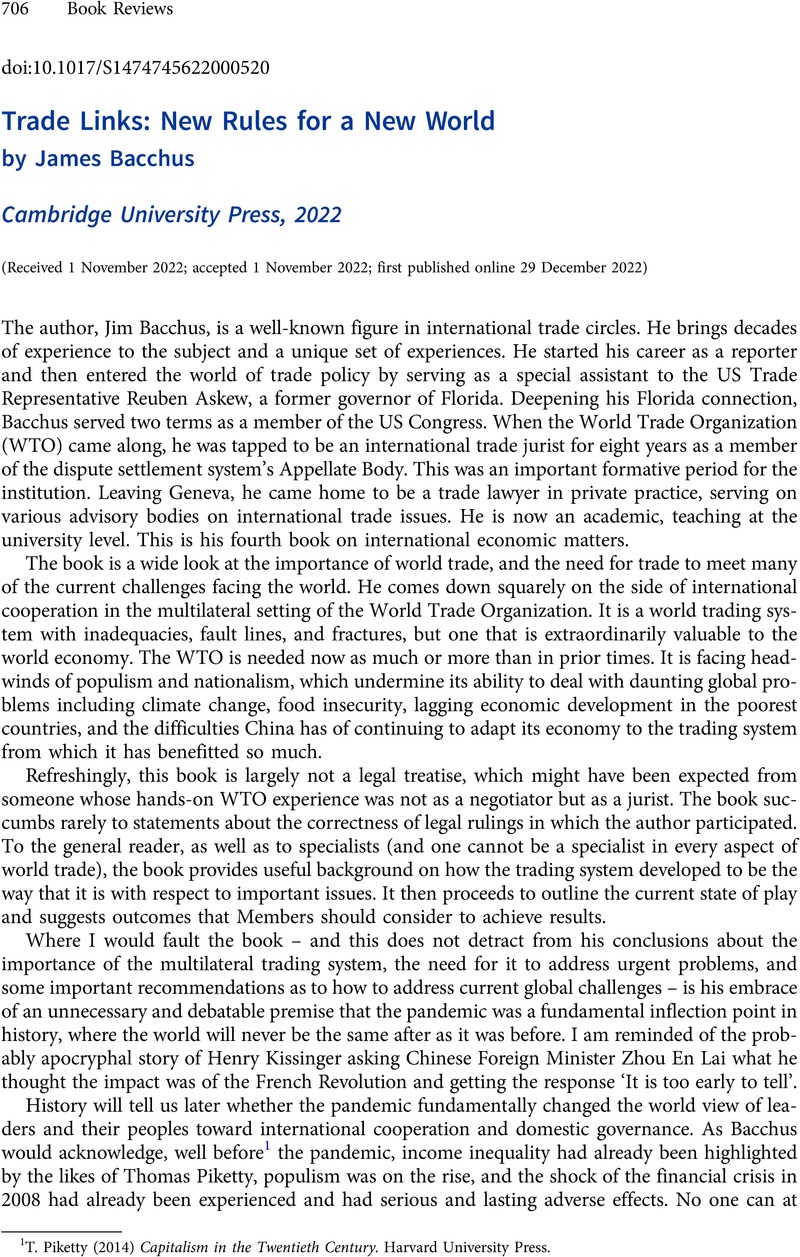No CrossRef data available.
Article contents
Trade Links: New Rules for a New World by James Bacchus Cambridge University Press, 2022
Review products
Published online by Cambridge University Press: 29 December 2022
Abstract

- Type
- Book Review
- Information
- Copyright
- Copyright © The Author(s), 2022. Published by Cambridge University Press
References
1 Piketty, T. (2014) Capitalism in the Twentieth Century. Harvard University PressGoogle Scholar.
2 DeLong, Bradford J. (2022) Slouching towards Utopia: An Economic History of the Twentieth Century, Basic BooksGoogle Scholar.
3 ‘How Democracies Can Shape a Changed Global Economy’, Brookings Institution, 11 October 2022, www.brookings.edu/events/how-democracies-can-shape-a-changed-global-economy/.
4 Remarks by Ambassador Katherine Tai at the Roosevelt Institute's Progressive Industrial Policy Conference, 7 October 2022. https://ustr.gov/about-us/policy-offices/press-office/speeches-and-remarks/2022/october/remarks-ambassador-katherine-tai-roosevelt-institutes-progressive-industrial-policy-conference.


